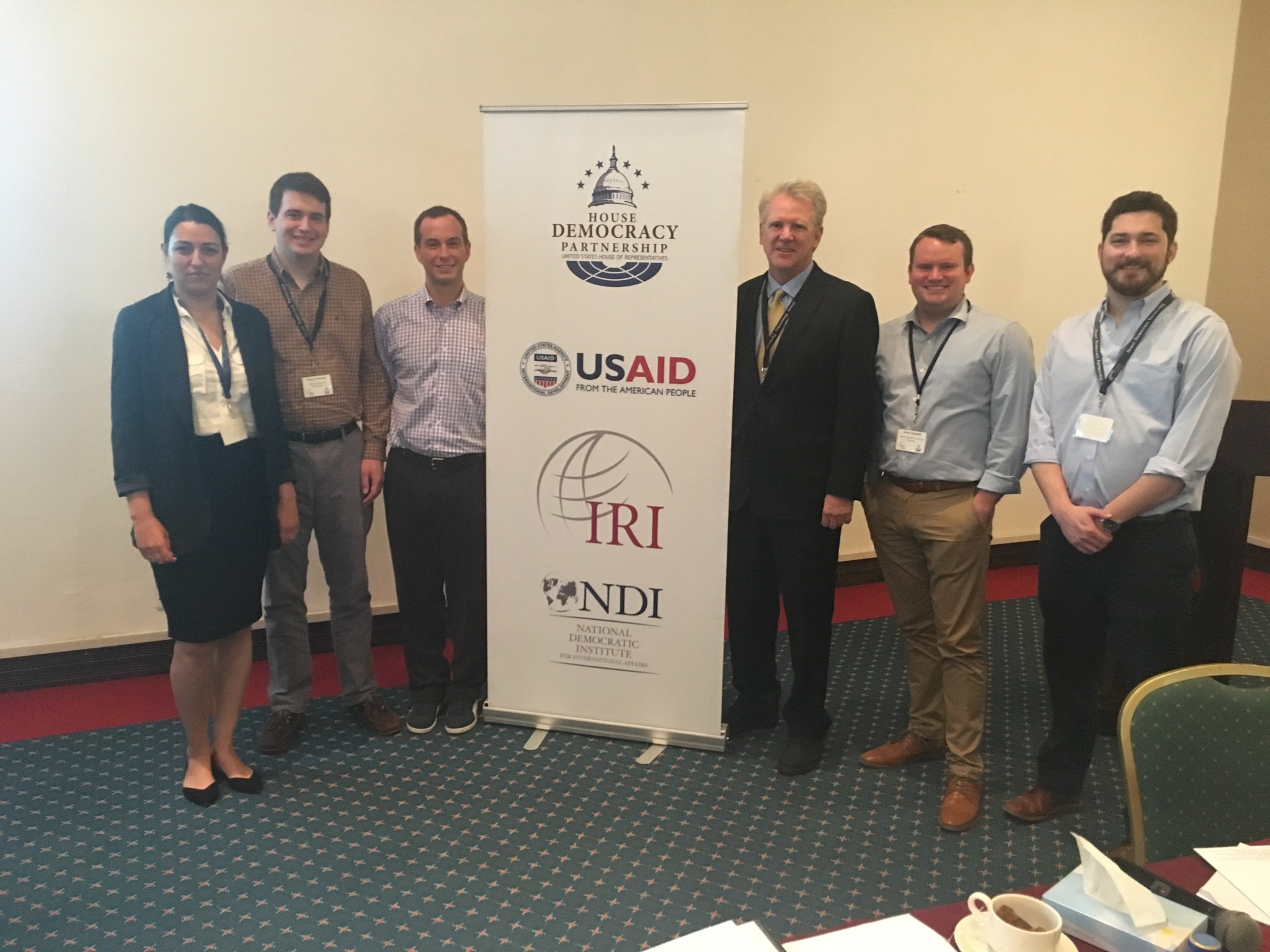This February, I had the pleasure of participating in a week of technical trainings in Kenya with the U.S. House of Representatives’ House Democracy Partnership (HDP) program.
Two fellow trainers and I partnered with staff from IRI from Washington D.C. and Kenya to help encourage strengthening of the legislative process in Kenya. We conducted the trainings with nearly twenty Kenyan partners, including a couple members of parliament and parliamentary staff. As a current congressional staffer for HDP Chairman Peter Roskam, it was encouraging to make connections with fellow staffers in Kenya.
Before we conducted our trainings, it was beneficial to hear from local IRI staff about the long history of HDP’s involvement in Kenya dating back to its founding in 2005. The Kenyans have gone through remarkable constitutional changes since then. The 2010 constitution, among other things, created a bicameral legislature, adding a Senate in additional to the National Assembly and electing members to this new legislative body in the 2013 elections. It became clear throughout the week that the Senate has struggled to find its role in the past seven years, with consequential pieces of legislation skipping Senate approval, passing the National Assembly and then going to the President for signature. Positively, the new Constitution has created a devolved system of government consisting of 47 counties, which are represented by the Senate at the national level. The history of HDP’s impact in Kenya was clear to see, with a couple of past HDP alumni joining us from parliamentary staff.
On February 10th, I had the honor of conducting two trainings. The first was on constituent services and how members of congress use that to provide a link to the public they represent. I noted how every congressional staff has a role in constituent services, including answering constituent questions and assisting them with their problems. I expanded on this by discussing my role in Congressman Roskam’s office, which is assisting constituents with problems they are having with federal agencies. I explained that a Representative helping their constituency will encourage goodwill and support for the member and their future endeavors. It was intriguing to hear what members of parliament in Kenya do to assist their constituency, which looks a bit different than it does stateside. Members of parliament are given a constituency development fund that they can use to build local schools or public buildings in their home district.
My second training was on how members of congress use the media and social media to communicate with their constituents. We discussed how all media communication is a two way interaction that helps Members represent their constituents’ wants and needs while also allowing a member to communicate his or her initiatives to their constituency. It was beneficial to hear what media communication methods were most effective from the members of parliament present. We heard how a more rural district will rely on traditional methods of outreach through newspapers or word of mouth, whereas an urban district in Nairobi would rely heavily on social media communication.
Overall, the trip to Kenya was a learning experience on both sides, including our trainers and the Kenyan participants. Despite the always present need for improvement, I learned about the great democratic strides Kenya has made and was able to see it firsthand in our participants. The participants were very engaged, and left us all confident they were filled with gusto and great ideas on improving legislative procedures in the National Assembly and Senate.
Top